This artist, a native of Niš, captivates with his modesty, but also with great talent. Holding the horn, the queen of instruments, in his hands, in front of eminent artists such as Zubin Mehta, Krzysztof Penderecki, Emmanuel Pahud, Stefan Dohr, Steven Isserlis and many others, he attracted the attention of the world public.
In Belgrade, he remained noted as the first horn of the Belgrade Philharmonic, and in Novi Sad as a guest member of the Vojvodina Symphony Orchestra and a part-time associate of the Opera Orchestra of the Serbian National Theater. After completing basic studies at the Novi Sad Academy of Arts, in the class of Nenad Vasić, and postgraduate studies in Salzburg, with the famous horn player Radovan Vlatković, his path of art is developing towards all destinations in the world. The name of this horn player is heard in many countries such as China, Argentina, Spain, Switzerland, and Austria. He is one of the first artists of the younger generation to write a pedagogical manual for horn players in Serbian – that is his book Horn Morning Sunshine. He holds his masterclasses abroad, and his role as an instructor at a music festival in the Swiss city of Verbier stands out as exceptional.
PEDAGOGICAL BOOK
Horn Morning Sunshine
The book was given this title because I believe that a morning encounter with an instrument can change the course of a young musician’s career, not to mention life itself, because in the first hours of the morning your brain functions best and you have the highest level of concentration. While I was studying, I liked to practice very early – my encounter with the instrument started around 6:15 in the morning. In the preface, I wrote that I do not hide any secrets of life, but that these are the fruits of the forest of knowledge that I collected from the ones smarter, more experienced and better than myself. My whole philosophy of playing is based on simplicity and warm air; I tried to convey that to people in the book and I see that they react well to it. Another goal related to the manual was to have something of that kind in Serbian. For many years, nothing has been written for our instrument, except for the material for all brass instruments left by Dubravko Marković.
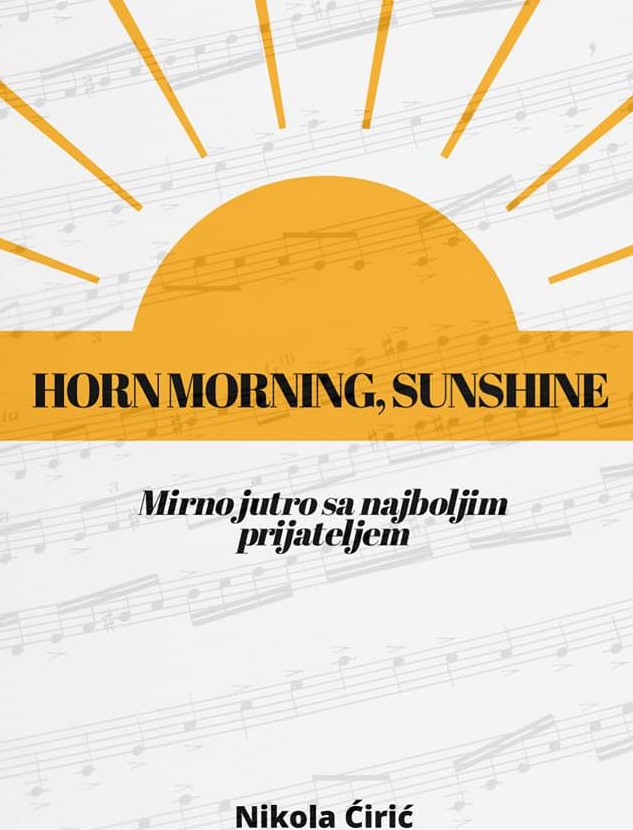
In my book, I deal with narrow professional issues – horn and breathing, which can help us. I implemented in it the philosophy of Arnold Jacobs, the famous tubist of the Chicago Symphony Orchestra, whom I consider the father of proper breathing on a wind instrument. I want to place some new textbooks for our market in the future as well, primarily because I have a mission to leave behind me literature for children who may not have even started learning horn or may have not been born yet. I want them to get instructions for easier access to our instrument with that literature. I hope to continue expanding hornist Serbian literature. I want to write a textbook, although I can’t talk so much about what I do, a new textbook entitled Stressless Musician, where I would like to show more deeply the mental preparation and the way I understand a professional musician as a professional athlete, and to connect all that with the diet, the way of preparing, auditions, exams, etc … And after that, to go even deeper into the performing technique of playing the horn with different aspects, with different angles of looking at playing the horn.
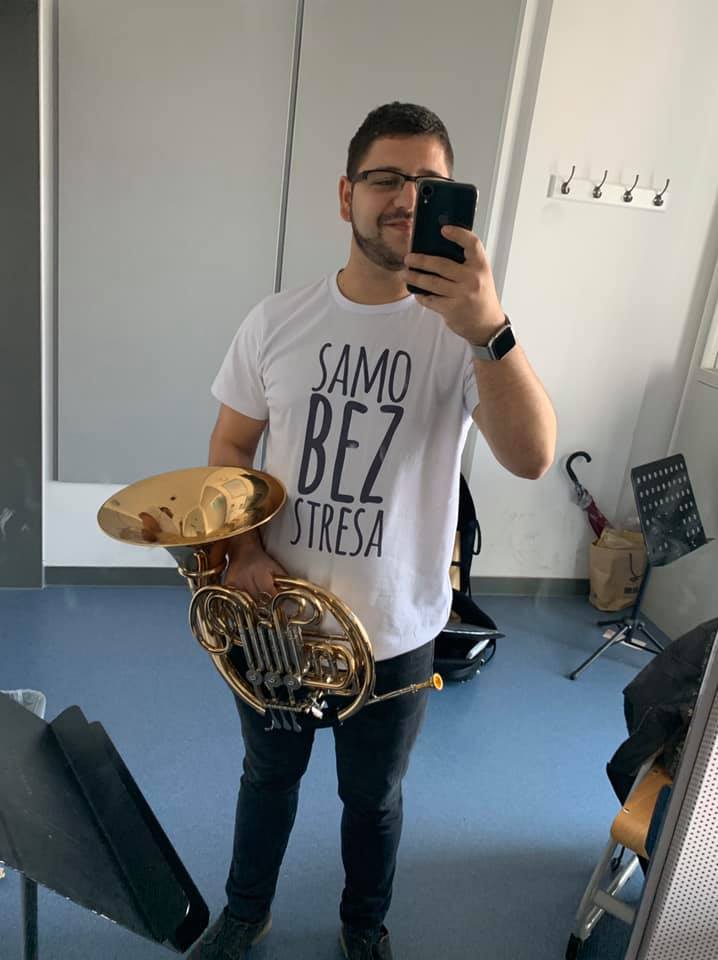

BEGINNING – CHILDHOOD
I come from a musical family, my father and grandfather are musicians, and my father was also a horn player. The concert of Đorđe Balašević, which I watched on RTS as a child, was crucial for my involvement in music. That’s when I thought: “Man, I want to be an artist like this man.” Of course I had to go to music school, and then it was clear that I would play the horn when my dad was already playing that instrument.

Whenever they ask me about an anecdote related to playing, I remember the competition in Novi Sad. The late professor Dubravko Marković had a big festival of brass instruments and every year we came from Niš to that competition. There was a rule that the obligatory composition was played by heart. When I went on stage and started playing, a memory mistake happened to me, I completely forgot the notes and, as a charming child, I stopped, looked at the audience, bowed and said: “I’m sorry, but we can’t continue.” And then Professor Dubravko said in his recognizable voice: “Come on, Ćirić, look at the notes and continue …” That’s how it remained as an anecdote, but also as stress because it took me a very long time to start playing again without notes. Even to this day I avoid it; whenever I can, I put notes in front of me on the counter and somehow feel safer.
STUDYING IN NOVI SAD
When it came time to enroll in studies, like any future student, I inquired where it would be the best to go and I went to trial classes held by professors in Niš, Belgrade and Novi Sad. Somehow Novi Sad was the last, and when I came to that city for a rehearsal class with Professor Nenad Vasić, who today, in addition to being my eternal professor, is my best friend and best man, that first meeting with him enchanted me. And so I applied for the entrance exam only in Novi Sad. Whenever I have any doubts related to life and the horn, he is one of the first addresses I turn to; he greatly influenced my life in many aspects and the formation of me as a person.
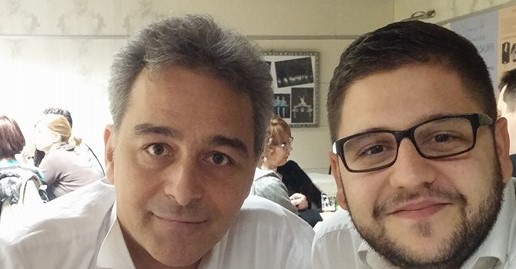
I consider him Professor Kosta Vujić from that famous film (Professor Kosta Vujić’s Hat) – he is just such a man who knows how to encourage when he needs to, he knows how to criticize, but in the right way. I consider him an advocate for the phrase, at least for this field, so he is largely responsible for all that I am today. The logical consequence was to enroll in postgraduate studies in Salzburg after the master, where a completely different part of life followed up, which changed me even more. Yet, Novi Sad is something special for me …
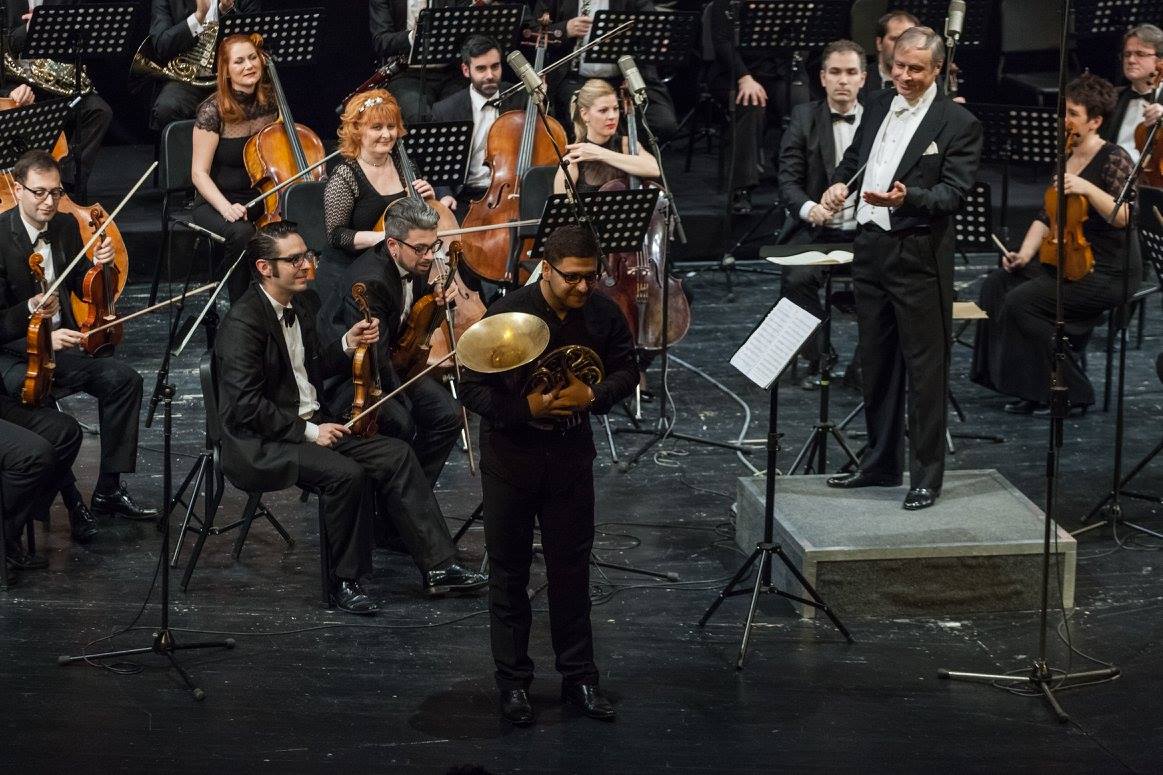
I live there today because it is especially engraved in my heart and I believe that it is perhaps the only city in Serbia where I could imagine myself in the future and for the rest of my life.
STUDYING IN SALZBURG at the Mozarteum
I will always remember that period in my life. For now, there is no better moment, and I do not believe that a better professional moment will happen to me, because it was the realization of my dreams. I remember that I kept some boyish diaries and constantly wrote in them that my only dream was to be a student of Radovan Vlatković … And when that came true, the ground ceased to exist under my feet, I started floating. After enrolling in postgraduate studies at the Mozarteum, I auditioned for the first horn of the Belgrade Philharmonic and then lived my two dreams in parallel – I was a soloist of the National Orchestra (fortunately I still am) and a student of the legendary horn player, whom I considered my greatest role model. The beginning of my studies in Salzburg was designed in a way that I went to Austria for seven to ten days every month. In addition to my own, I went to the classes of all my classmates, from morning to night, and I literally tried to observe the professor walk, the way he held the instrument … so that I could penetrate as deeply as possible into his philosophy of playing and in general in his way of existing as an artist.
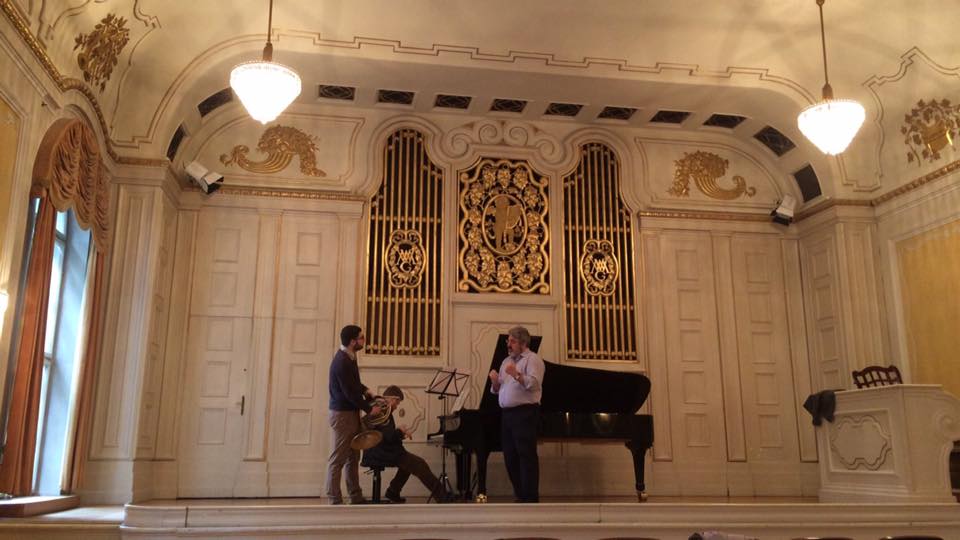
That helped me create that last finishing touch in my palette of colors and create a personal image of myself as an artist. After that, Professor Vlatković had another gift for me when we, as colleagues, played a concert with the Belgrade Philharmonic, after a performance in Spain in Santander. So it was another dream and everything that happens after that I still consider a luxury, as something that can come, and doesn’t have to. Because my dreams related to the instrument were completely realized by him becoming my professor and I his student. This is the moment when a person gets the opportunity to receive the essence of art in themselves and after that they can see, what we would say with this modern vocabulary – all the “fake” things that happen to us and all the fakes on stage and see all those who truly live and breathe art.
DEALING WITH PEDAGOGY
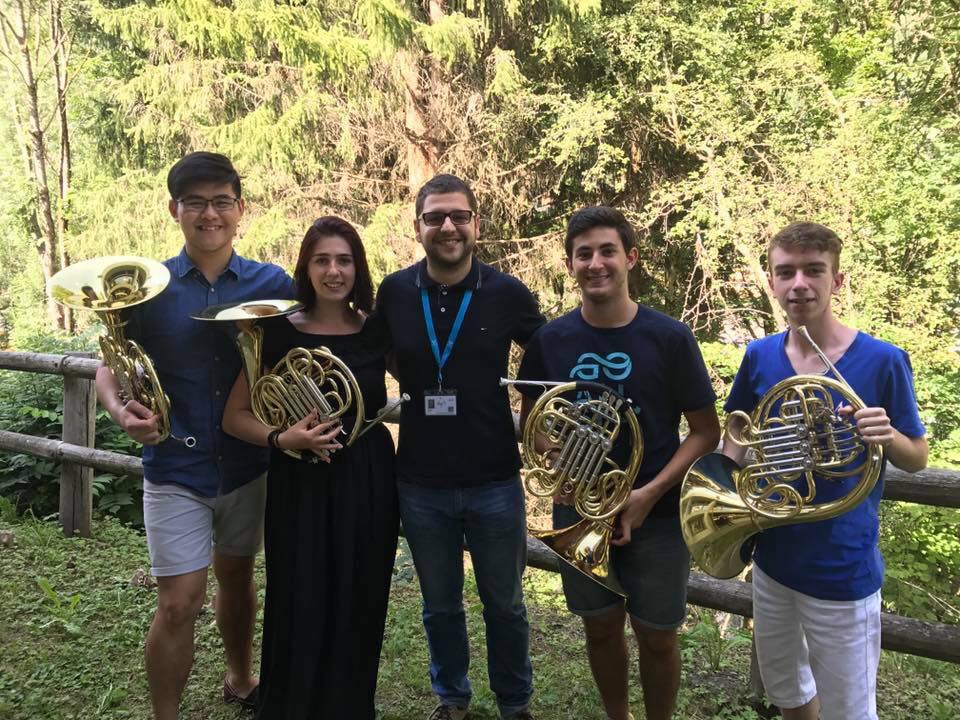
I can’t say for myself that I am a good pedagogue, I am still young to be able to convey the true essence to someone, but I try to offer my experiences so far. I try to talk to all my young colleagues in master classes about what I like and then together we try to find out what that colleague can take for himself and then implement it in his playing. At the festival in Verbier, I was the instructor of the Youth Symphony Orchestra and I spent a wonderful three weeks there. I had students from France, Singapore and Spain, they are two boys and one girl of fantastic abilities, very young – 16, 17 years old – who play like top professionals; they are now already in serious studies, at important faculties. Verbier is the essence of art in the small; that little village in Switzerland hosts the best musicians in the world for a month and a half. I met top artists; my first neighbor was Yuja Wang, whom I listened to with my morning coffee as an exercise … and that was surreal. That moment is important for my life and I am very glad that I was there at the invitation of clarinetist Aleksandar Tasić; it is another experience that has completely changed my life for the better.
MASTER WORKSHOPS – THE INTEREST OF YOUTH IN THE HORN
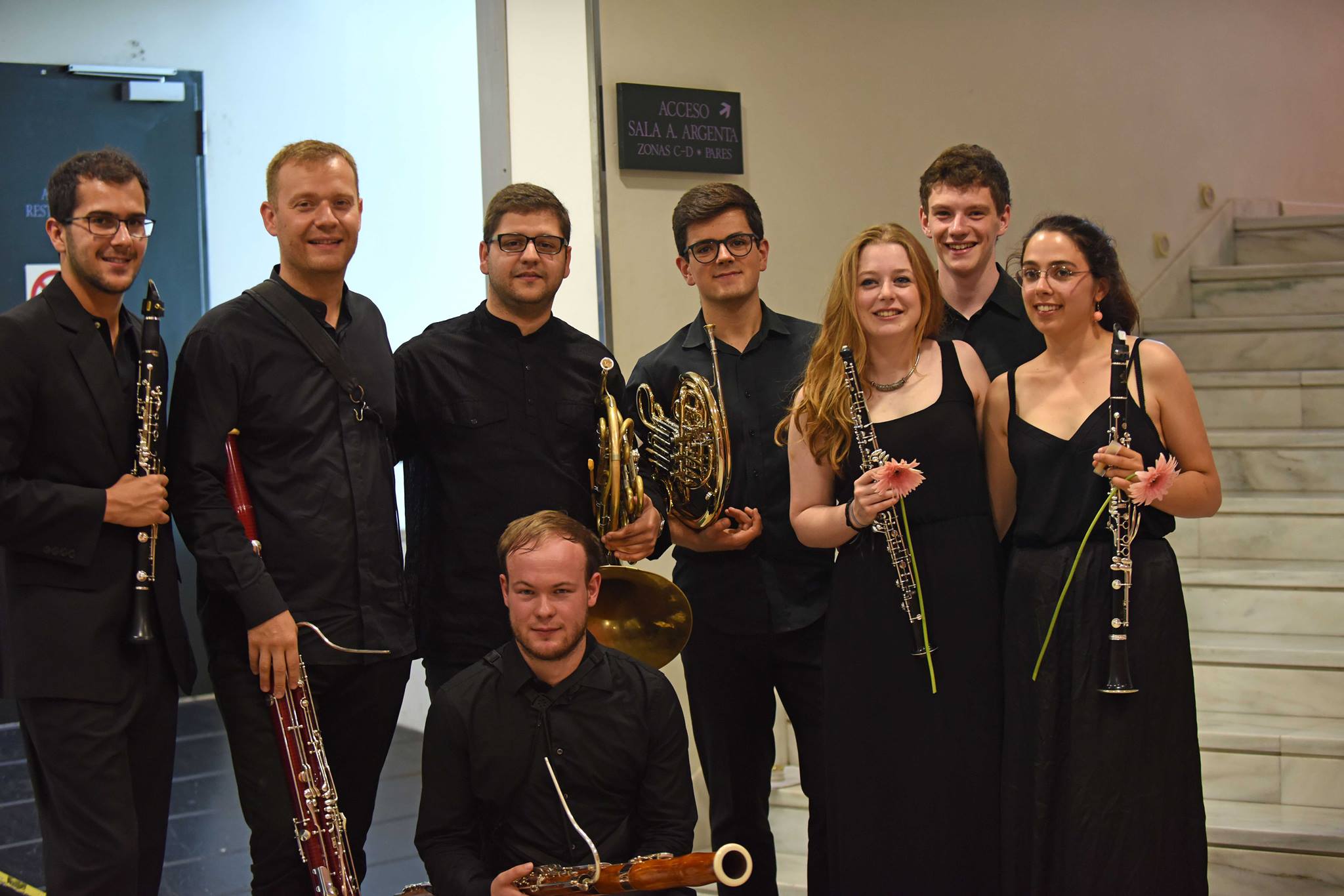
There is great interest. I have held master workshops in Asia, Latin America, Paraguay, Argentina, Romania, Croatia, Bulgaria, England, Switzerland… What is interesting about my lectures is that I try to present the horn in a simpler way. Given that we live in a world full of expressions: “you can’t, you don’t know, you won’t, no, you’re not capable, etc …” I try to create a balloon full of expressions with young colleagues: “you can, come on, you are ready, it will happen … “and, somehow, they react well.
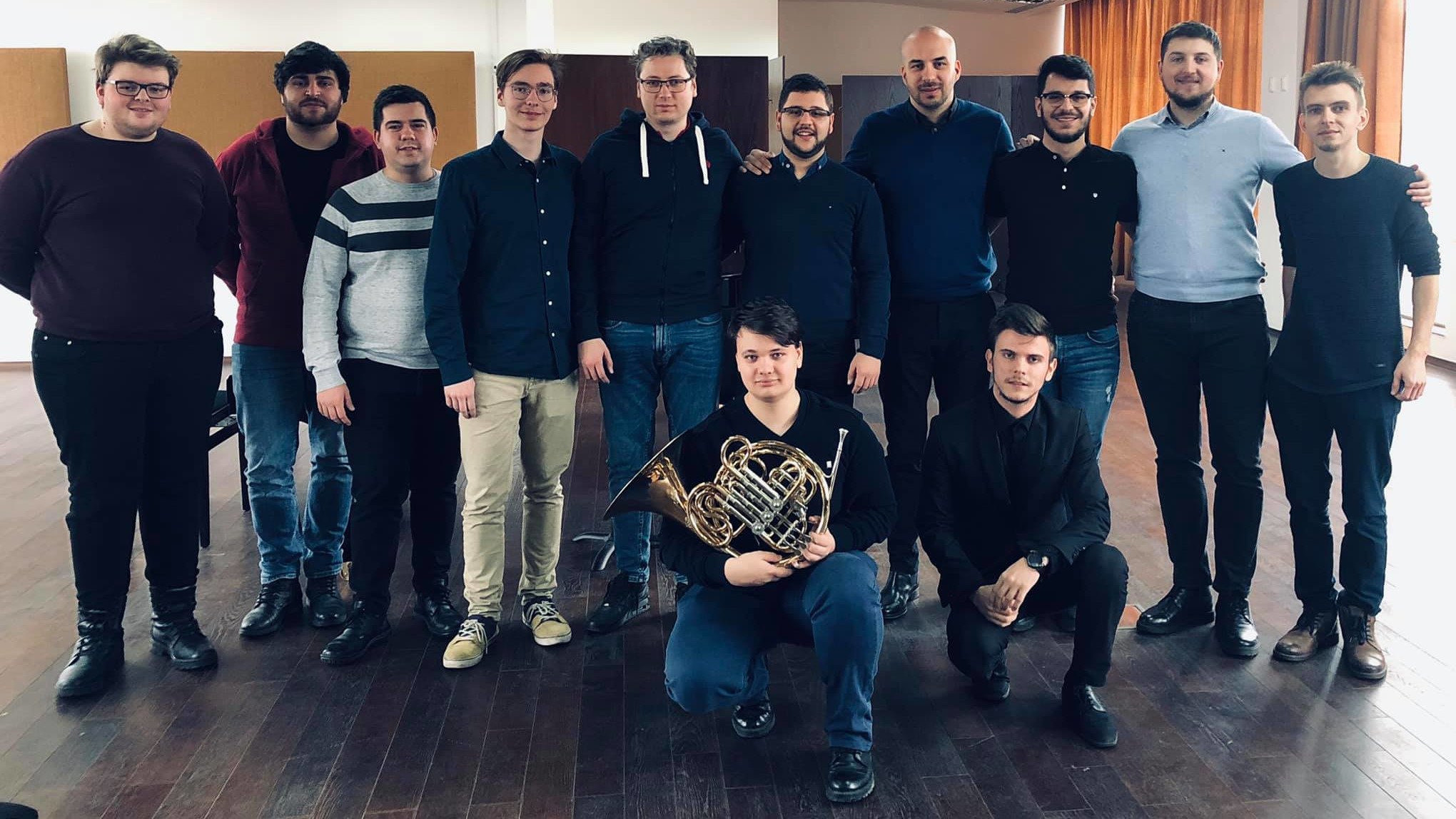
They come to me even after master workshops with various new ideas, questions, I try not to offer a concrete solution in the form of a prescription and medicine, although sometimes I do, but I want to somehow come up with a solution together and see in which way we can overcome some problem. The horn is a specific instrument, so it is not surprising that there are so many jokes about horn players and the divine instrument because only God knows what comes out of it… But somehow with a simpler approach, I believe that we can reach security in playing because by thinking too much we only come to knots and unsolvable situations; that is how it is with the horn and any instrument.
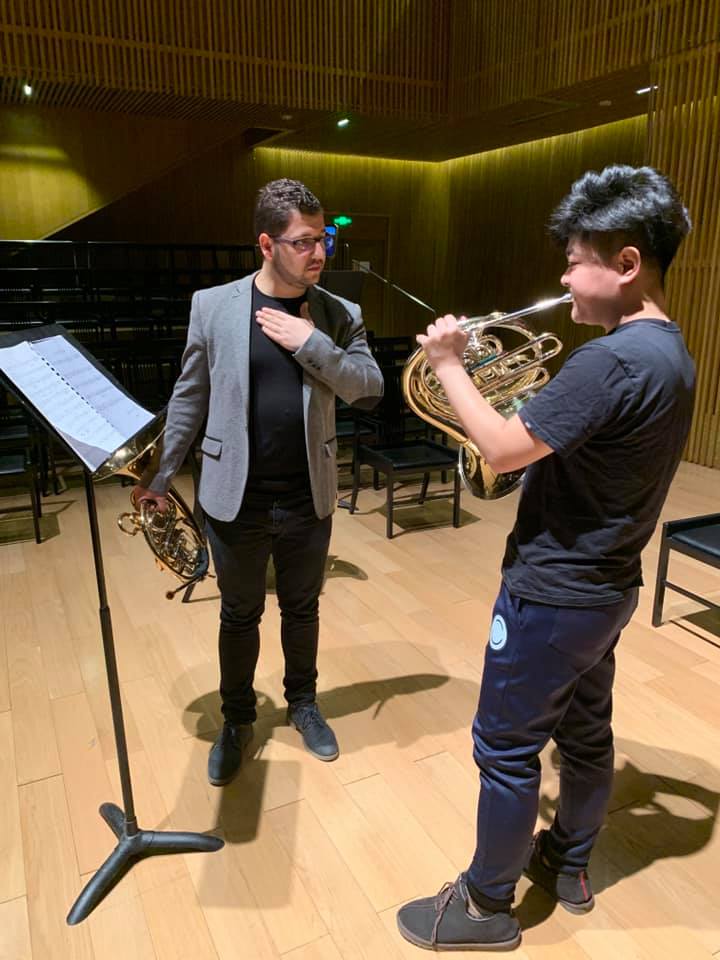
LIFE IN CHINA and playing in the Beijing Conservatory Orchestra
I had prejudices about China, I can’t hide it and I won’t lie. I didn’t believe that it could be the way it is … China is a country that is on an upward trajectory with the speed of a rocket, and everything that happens in China happens incredibly fast. In the past 20 years, I believe, they became a wonder of the world – both as in terms of economy and as a nation. From one factory of the world, they became consumers of the world, and what they used to be for the whole world, is now the whole world for them.
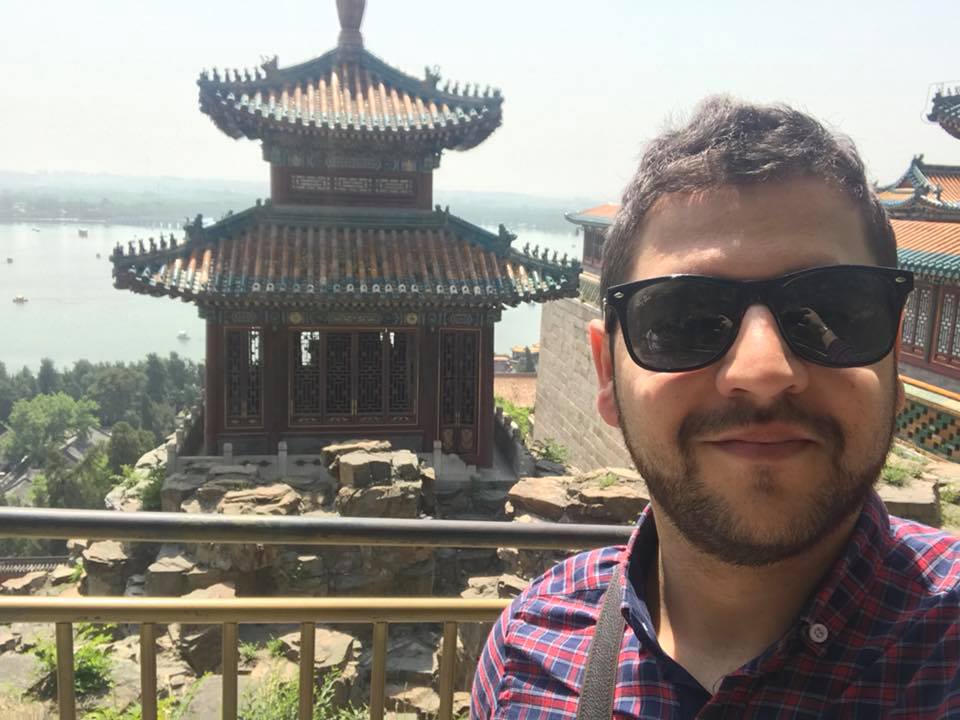
Now everyone is coming there, the music offer is unreal. The world’s largest orchestras are guests in Beijing every week – Valery Gergiev has been conducting concerts with his Mariinsky Theater for four days in a row. The Berlin Philharmonic, the Chicago Symphony Orchestra, and the Dutch Royal Concertgebouw Orchestra perform. I am overjoyed to be there, working as a foreign expert at the Beijing Conservatory and a solo horn player with his orchestra. They have a pretty good system – within the conservatory there is a professional orchestra that works, plays its concerts, and has the obligation to collaborate with students of conducting and composition once a semester. Life in China is modern; if there were no Chinese letters in Beijing, one would think they lived in New York. I am there with my wife and we have no feeling at all that we live abroad because when we return home and lock the door of our apartment, we are again where we want to be – in our bubble; it is the same as in Novi Sad or anywhere, so I believe that everyone creates their life the way they want. As for work and colleagues there, I work with a lot of foreigners; it’s an international team and we really enjoy playing chamber music; I have two colleagues in the section from England and one from China, we often play quartets. I am now recording different music, and I got the perfect opportunity to improve as a studio musician. There is a lot of work, but at the same time, life there is very interesting.
IF IT COULD TALK, WHAT WOULD THE HORN, AS QUEEN OF INSTRUMENTS, SAY ABOUT YOU?
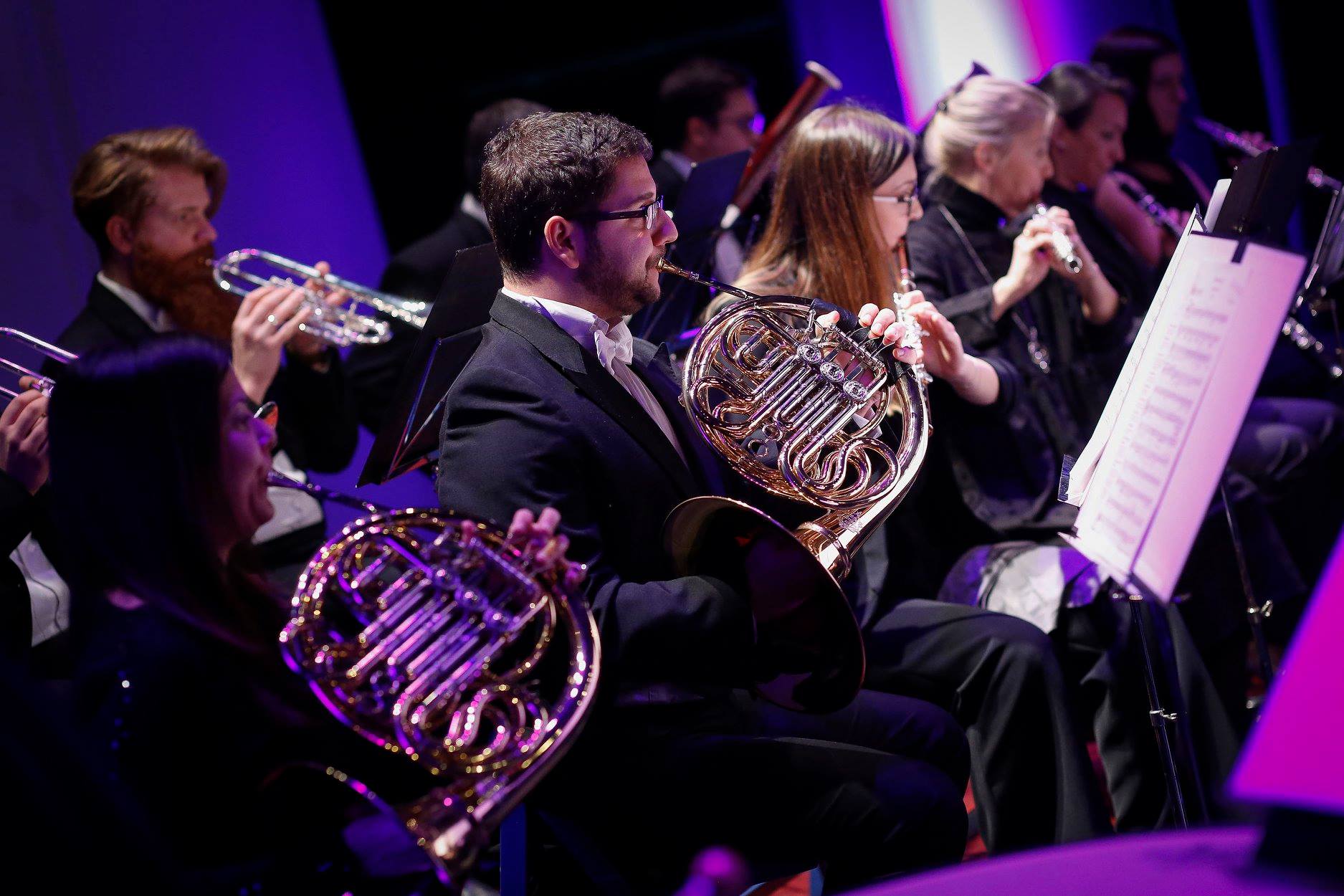
(Laughter) She would say, “Leave me alone, weird man!” We went through a lot of beautiful and ugly things together and we argued a lot until we realized that the problem is never with her, but that the problem is always in me. If it weren’t for her, I believe 70 percent of my personality wouldn’t exist, and yet if it weren’t for me, that piece of metal wouldn’t be able to experience the beauty that music itself gives. Together we are a beautiful symbiosis. However, I never forget what my professor Nenad Vasić told me: “Don’t believe her until you put her in a suitcase and lock her up, because even then she can be wrong.”
THE MOST IMPRESSIVE MOMENT IN YOUR CAREER SO FAR …
The most important event, for which I am still not aware of how it happened, is Rosetti’s double concert for two horns with Radovan Vlatković. Full stop.
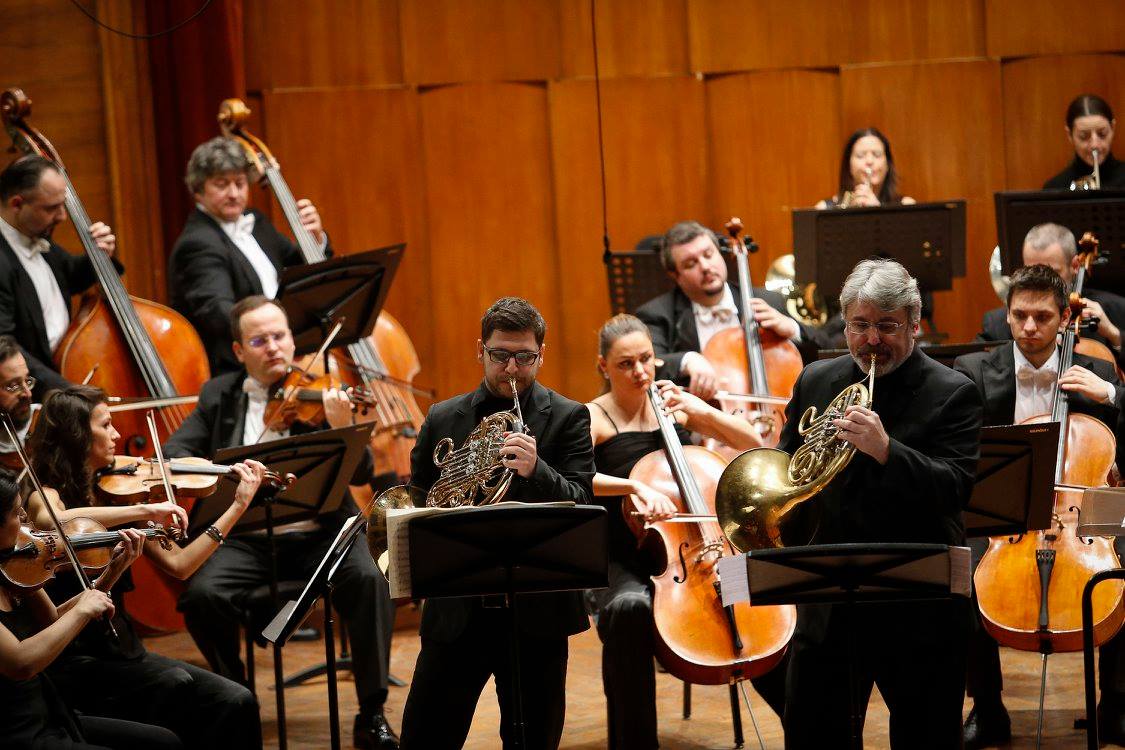
That is out of category. Everything else that happened fascinated me to a greater or lesser extent, and the number of countries and cultures I have had the opportunity to meet speaks volumes about my career so far. I think that every new city, every new village, man is one piece of my mosaic. When I look at the world in that way, then all those flights, hotels, rehearsals stop being a burden because I know that every plane I sit on and fly on takes me to a new experience. I remember a wonderful memory when I was in Asunción. I played with the Paraguayan National Symphony Orchestra as a soloist at the world premiere of a concert called El Tour, which means the Paraguayan horn used by their villagers to “shout” from field to field, from forest to forest and so on… Composer Diego Sanchez Hase, who wrote the concert, after that performance, together with colleagues from the orchestra, prepared an evening of their local specialties, local music, and they brought me an el tour instrument to try to play. When a person experiences the culture of one place in that way, then he can actually recognize how close our souls are and how much we all actually exist as one nation. I love my nation, language, culture, religion very much and that is why I try to get to know other religions, cultures, people as much as possible, because I learn two things from that – to be modest because I know that there are other people who have the same treasures like I, and secondly – to love and get to know my own even more because we are not even aware of how deep the ocean of our nation, culture and art really is. Only when we start to admire the beauty of the Sistine Chapel or anything else, we can become aware of the beauty of our painters, our country houses, old barns and everything that is beauty in our country. All together, One great treasure I got was those trips. Even if there was nothing, and if I only had that concert with Vlatković and all the countries I saw left, I would say “thank you very much – that’s enough for this show”.
Translation: Jelena Čolović
